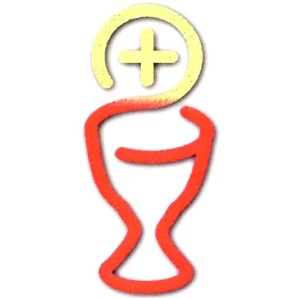In music terms, this is an ancient Christmas Carol, dating from the 16th century. I was only introduced to it two Christmases ago though. Cast your mind back. December 2020 was a bleak time. Only a few people were allowed in our churches, and major festivals and services were pre-recorded. Great efforts were made to increase our digital output, with carols broadcast daily as part of our first Digital Advent Calendar. Identifying, learning, recording, editing and publishing 24 different – and suitable – carols is a bit of a challenge, and we were struggling to make up numbers. And then Tom messaged me one evening with some ideas. He had been browsing “100 Carols for Choirs”, and suggested this one along with some others. It was perfect.
Written in Middle English, contemporary publications have modernised and standardised spellings in the text somewhat:
I saw a fair mayden sytten and sing.
She lulled a lyttel childe,
A sweete Lording.
Chorus: Lullalay myn lyking,
My dere son, my sweeting,
Lullalay my dere herte,
My own dere derling.
That same Lord is he that made alle thing;
Of alle lord is he is Lord,
Of alle kynges Kyng.
Chorus
There was a mickle melody at that chylde’s birth.
All that were in heav’nly bliss,
They made mickle mirth.
Chorus
Angels bright sang their song to that chyld;
Blyssid be thou, and so be she,
So meek and so mild.
Chorus
And if you think that’s hard to read, you should see the original!
This is a lullaby, a gentle song sung by a mother to a baby to soothe him to sleep. She calls him “myn lyking” – or “my lovely”. She sings the story of Jesus’ birth, telling of a young maiden (Mary), singing to her own baby, who is the Creator, King of kings and Lord of lords. On the night of his birth there was music and joy, angels sang, and all were blessed.
Although written to be sung, there are no surviving records of the music originally used. There have been many modern settings for words such as these, but we chose the one by R R Terry (1865-1938). I love the simplicity of the phrasing, and whilst the chorus has been scored for a 4-part choir, I prefer it with a solo female voice. It feels more authentic that way.
Tom and I recorded Myn Lyking on a suitably cold December evening in church, and you can see it here: https://www.youtube.com/watch?v=VlviRzWq9sU
Carol P
